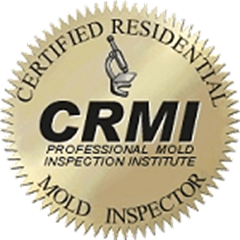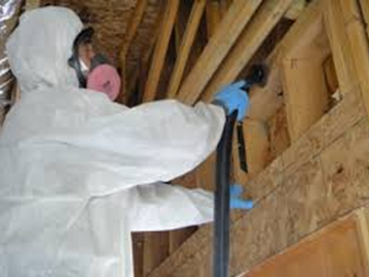NOT ALL MOLD IS DANGEROUS!
Don’t Let Other Companies Scare You.
Certified Black Mold Removal has been serving the
Homeowners of Eastern Pennsylvania
Since 1995!
 |
 |  |

As the premiere mold inspection, mold testing, mold remediation and mold removal experts in the Eastern Pennsylvania area, Certified Black Mold Removal is affordable and we offer practical solutions to your mold problems. We are MICRO certified specialists, fully insured and A+ members of the Better Business Bureau. Certified Black Mold Removal has been helping the residents of Bucks County PA, Chester County PA, Delaware County PA, Montgomery County PA and Philadelphia County PA with their mold inspection, mold testing and mold remediation needs since 1995!

The initial mold inspection is the most important part of the mold removal process. This is where a mold inspectors skill, knowledge & training come into play.
You see, a mold inspector is actually a detective. It is his/her job to ask the right questions, thoroughly visually inspect the entire structure and perform laboratory testing of the right areas of the building to be able to create a proper protocol for mold removal. If any of these tasks are not properly done, the mold remediation will have a high likelihood of failure.
What to Expect: When our mold inspector arrives at your home he will introduce himself and then ask to be taken to where the homeowner feels the problem originates. The mold inspector will then ask a series of questions related to the history of the home and any problems or issues you are aware of, past or present. He will then inspect the entire home, looking for the possible causes of the problem.
Once the inspection is complete, he will recommend mold testing. Mold testing will help determine the protocol that is to be used to remove the mold from your home. The two types of mold testing are swab sampling and air sampling.
Swab sampling is conducted for direct examination of possible mold. The purpose is to determine whether or not the staining on a surface is indeed mold as well as determining the type, toxicity and quantity of mold on a surface. Using a sterile surface swab the inspector will remove it from the packaging, roll the swab back and forth over the sampling area and then place it inside a sterile tube. It is then labeled and placed in a sealed bag along with a paper known as the chain of custody.
Air sampling is conducted through use of a Zefon Bio Pump. This machine along with an Air-O-Cell Bio-aerosol Sampling Cassette will be used to sample the amount and species of mold in the air.
The Air-O-Cell Cassette is placed on the Bio Pump drawing in air at a flow rate of 15 liters per minute (lpm) for a period of 10 minutes. Once a sample is taken, it is marked and along with any swab sampling that may have been taken, is placed in a sealed bag along with the chain of custody.
Once all sampling has been taken, it is then sent overnight to an American Industrial Hygiene Association (AIHA) Accredited Laboratory for evaluation. The turn around time for this service is only a few days so we are able to quickly begin the mold remediation process shortly after receiving the test results.
So you think what you can not see can't hurt you? Then think again!
There are thousands of different species of mold known to exist. Some are more potent than others. However, what can we do about the mold that we can not see?
It's not sufficient to simply remove the mold that we can see and treat or remove the surfaces that have the visible contamination. More often than not we must treat the air in the building as well.
Pictured is a Commercial air scrubber removes airborne mold contamination from a home
Mold, when disturbed, travels through the air, contaminating the environment that we live in, which often causes us to get sick. Thankfully, professional mold remediators can test the air in the building during the inspection process, to find out whether or not the buildings air is contaminated and if so, to what extent.
Once these laboratory test results are evaluated, we can remove the mold that's in the air by use of a commercial air scrubber. These machines remove airborne contamination as small as 0.3 microns by drawing in the air in a building and discharging it outside of the living space.
These machines will need to run for a varied length of time. The run time is determined by the amount of airborne contamination found in the laboratory report. Once the source of the mold damage is repaired, the visible mold is removed and the air is properly treated, the mold remediation process is now complete.
GUIDANCE FOR INTERPERETATION OF MOLD LABORATORY TEST RESULTS
The final mold interpretation should not be based solely on numbers! Information gathered from a walk-through investigation of the area is very significant, including sources of moisture or high humidity, and signs of visible mold growth.
When evaluating air samples, it is important to consider the type of concentration of fungi indoors, as compared to outdoors or a non-complaint area. One must consider the indoor/outdoor fungal count ratio, the presence or absence of certain fungi indoors versus outdoors, the genus or species of predominant fungi indoors versus outdoors, and whether the fungi detected indoors are allergenic and or toxic.
Due to complexity in interpreting laboratory test results, you should always ask your environmental professional for a detailed explanation.
It is important to note that there are no governmental-issued numerical standards for mold interpretation. However, some environmental companies, industrial hygienists, and other IAQ professionals use the following arbitrary numbers for guidance in interpreting microbial survey results.
Bio-aerosol (Air Samples):
| 250 | CFU/m3 | Low to Normal |
| 250-1,000 | CFU/m3 | Moderate to Borderline |
| 1,000 | CFU/m3 | Active Growth to Sporulation |
| 5000 | CFU/m3 | Very Active Growth to Sporulation |
Swab Samples:
| ND | None Detected |
| 10 | Spores Rare |
| 101-100 | Lights |
| 1,000 | Heavy |
References: EMSL Analytical Inc. (Guidance for interpretation of mold results)
 |
 |  |
 |
 |  |
 |
 |  |
Abington, Aldan, Ambler Ardmore, Aston, Audubon, Bala Cynwyd, Bedminster, Bensalem, Berwyn, Bluebell, Boothwyn, Bridgeport, Bristol, Brookhaven, Broomall, Bryn Athyn, Bryn Mawr, Buckingham, Chadds Ford, Chalfont, Cheltenham, Chesterbrook, Chester Heights, Chester Springs, Churchville, Clifton Heights, Collegeville, Collingdale, Colmar, Conshohocken, Cornwells Heights-Eddington, Croydon, Crum Lynne, Darby, Devon, Downingtown, Doylestown, Dresher, Drexel Hill, Dublin, Durham, Eagleville, East Greenville, East Lansdowne, East Norriton, Eddystone, Edgemont, Elkins Park, Essington, Exton, Fairless Hills, Feasterville-Trevose, Flourtown, Folcroft, Folsom, Fort Washington, Franconia, Furlong, Garnet Valley, Gilbertsville, Gladwyne, Glen Mills, Glen Riddle Lima, Glenmoore, Glenolden, Glenside, Harleysville, Hatboro, Hatfield, Haverford, Havertown, Hilltown, Holmes, Horsham, Hulmeville, Huntingdon Valley, Ivyland, Jamison, Jenkintown, King of Prussia, Kintnersville, Kulpsville, Lafayette Hill, Langhorne, Lansdale, Lansdowne, Levittown, Limerick, Linwood, Lionville, Lower Gwynedd, Lower Salford, Lumberville, Malvern, Maple Glen, Media, Merion Station, Montgomeryville, Morrisville, Morton, Narberth, New Britain, New Hope, Newtown, Norristown, North Wales, Norwood, Oreland, Otisville, Paoli, Penllyn, Penndel, Pennsburg, Penn Wynne, Perkasie, Perkiomenville, Philadelphia, Phoenixville, Pipersville, Plumsteadville, Plymouth Meeting, Pocopson, Pottstown, Prospect Park, Quakertown, Radnor, Red Hill, Richboro, Richlandtown, Ridley Park, Riegelsville, Rockledge, Rose Valley, Royersford, Rutledge, Salford, Sanatoga, Schwenksville, Sellersville, Sharon Hill, Silverdale, Skippack, Solebury, Souderton, Southampton, Spinnerstown, Spring City, Springfield, Spring House, Spring Mount, Swarthmore, Telford, Thorndale, Thornton, Trappe, Trooper, Tullytown, Upper Black Eddie, Upper Chichester, Upper Darby, Upper Makefield, Upper Uwchlan, Uwchlan, Villanova, Wallingford, Warminster, Warrington, Washington Crossing, Wayne, West Chester, Willow Grove, Woodbourne, Woodlyn, Woodside, Worcester, Wyncote, Wyndmoor, Wynnewood, Yardley, Yeadon, Bucks County PA, Chester County PA, Delaware County PA, Montgomery County PA, Philadelphia County PA